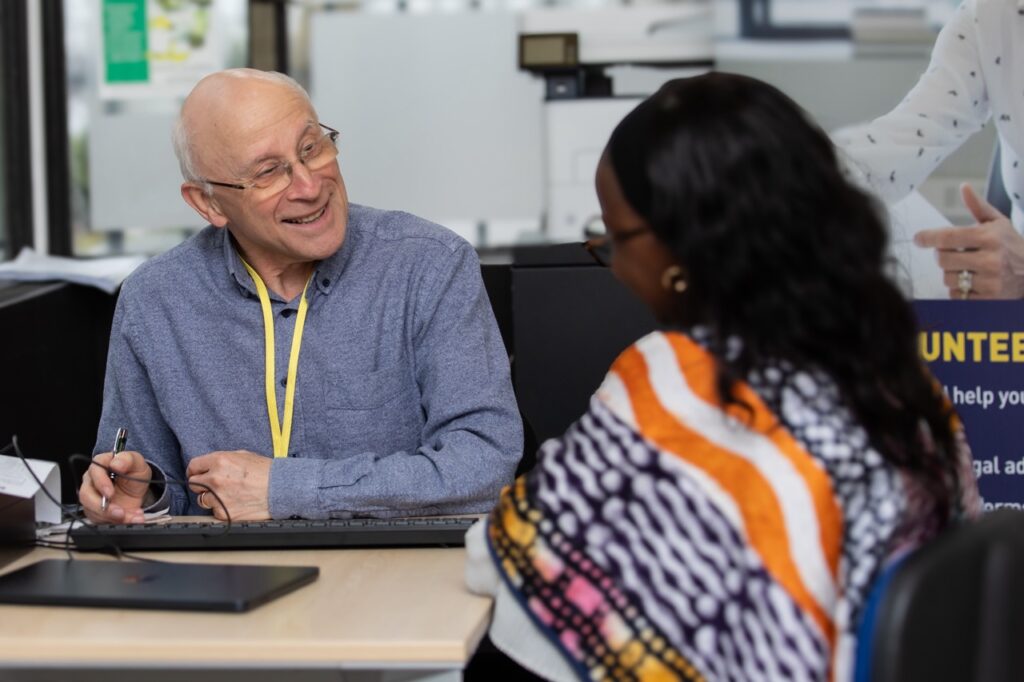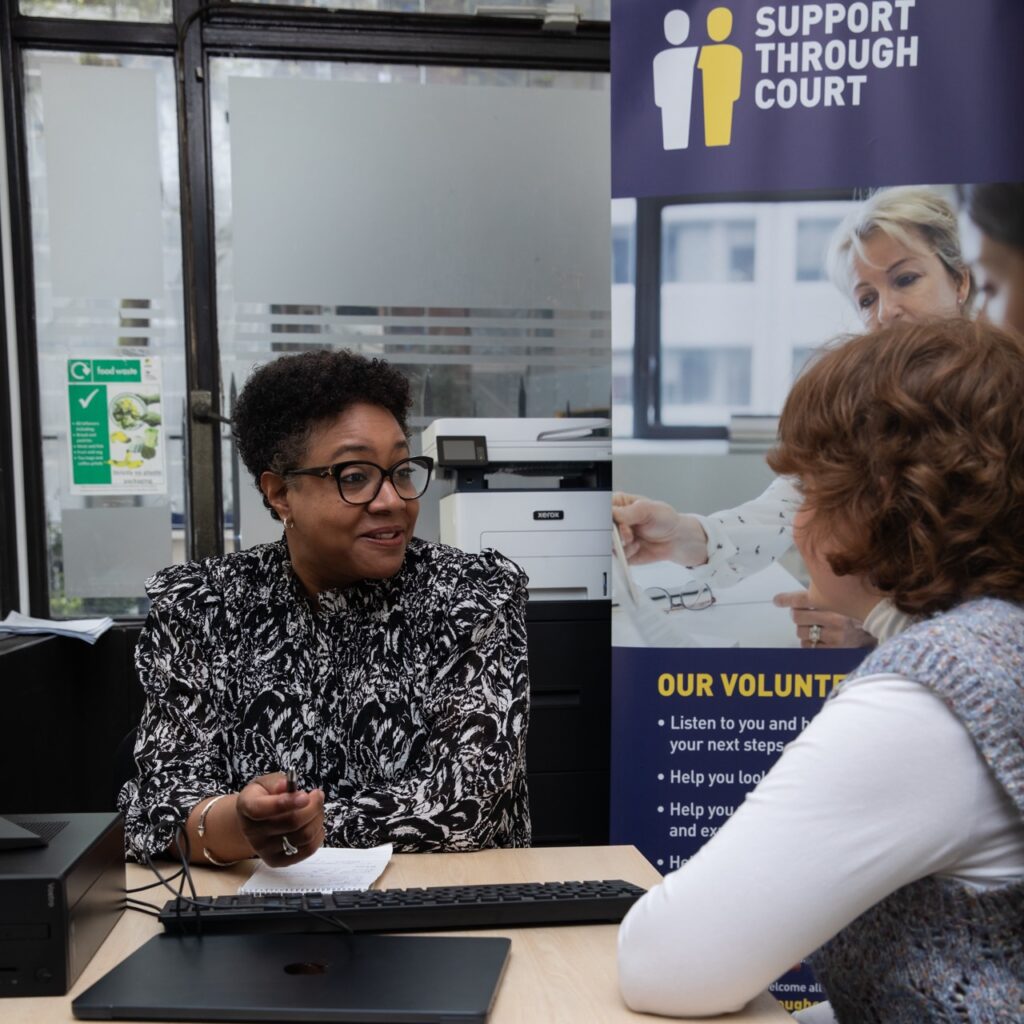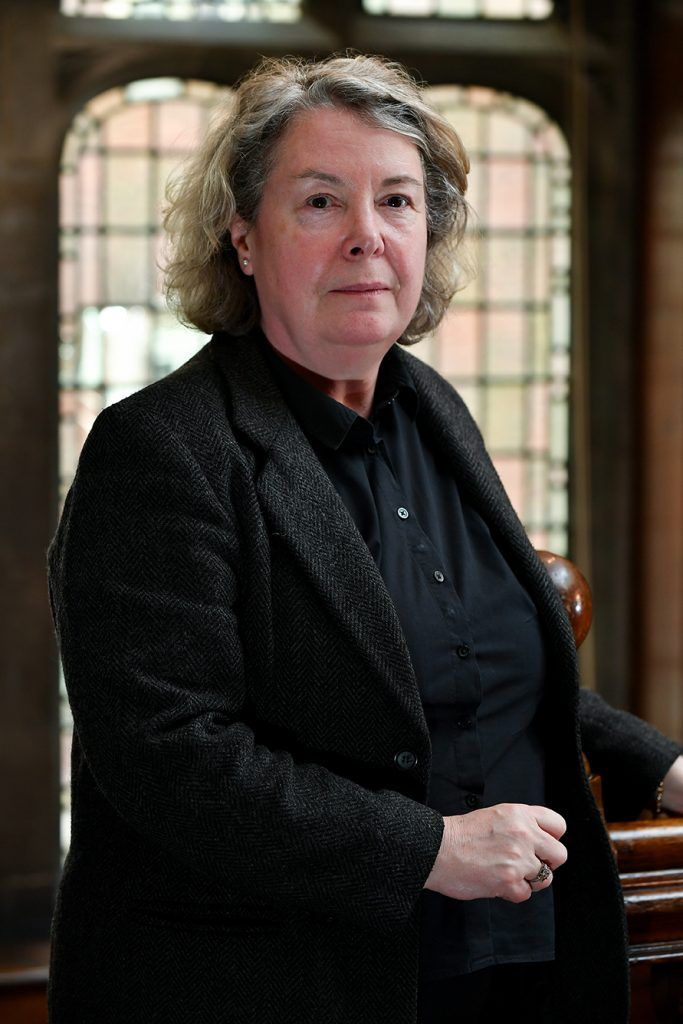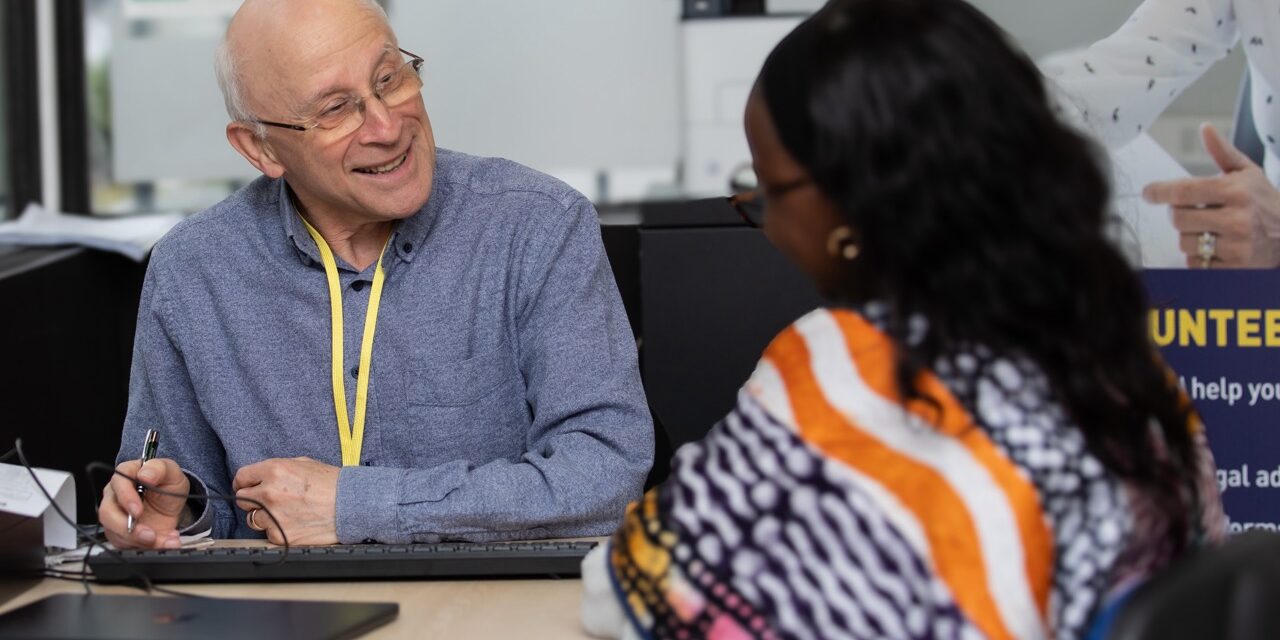
I’d like to give you an example of how Support Through Court makes a real difference to people’s lives.
Sheila has two grandchildren. One is her son’s child, and the other is his partner’s child. Sheila has been caring for them since they were only a few months old because they were being neglected. With parental consent, Sheila took them in and provided for them as though they were her own children. However, she had no legal rights over the children.
Sheila was seeking a special guardianship order to give her some rights. She hoped this would be simple as the parents had agreed this would be the best for the children. During a court hearing, however, the mother said that she would want some contact, although she couldn’t say exactly what. The case became more complex.
When Support Through Court first met Sheila, she broke down in tears. She was overwhelmed with stress, exhausted, and miserable not knowing about what she faced with the court procedure and hearings. A Support Through Court volunteer explained how the court system works, and helped Sheila write her statement clearly and in an appropriate format. This enabled Sheila to represent herself effectively at the court hearing.
Support Through Court’s help reduced Sheila’s stress and alleviated her worries about court procedures, which gave her time and energy to do more for the children. Her increased clarity and well-being helped her to represent herself more effectively and get the best outcome for her grandchildren.
I am very proud to be a Guardian of the charity Support Through Court, a charity which works tirelessly to ensure nobody is forced to face court alone.
The increase in cuts to legal aid over recent years has meant that more people face civil or family courts alone. Their ability to have access to justice is limited by how overwhelming the legal system is for those who have never faced it before. Most struggle to represent themselves effectively in court. There are many reasons for this, including lack of confidence, mental illness, and lack of education or illiteracy.

Support Through Court (previously known as the PSU) provides a vital service to litigants in person. Over 600 volunteers provide emotional support and practical guidance in courts across England and Wales from 13 offices, including a national phone line and an online service.
Last year, Support Through Court provided more than 51,000 sessions of support to litigants in person, with 95% of clients saying that the support they received made procedures clearer and helped them feel better prepared. The impact is undeniable.
The life-changing outcomes of clients’ cases mean that, despite health and financial risks, they are determined to pursue justice. This is so even for vulnerable individuals who face additional difficulties. In 2023/24, 34% of Support Through Court’s clients had a serious health issue or disability, and a quarter did not have English as a first language.
The volunteers continuously strive, not only to explain technical legal language but also to enable clients to express their thoughts in a clear and structured way, which helps them to avoid being overwhelmed by the challenge they face. Support Through Court’s trained volunteers help people at any point in their case – they don’t represent people, but they provide vital emotional and procedural assistance. Be it on the phone, via Zoom or in person, their volunteers help people get legal aid, help people complete complicated legal forms, understand what is required of them, and volunteers also accompany them into their hearings. Their presence enables people to stay calm and collected – and means vulnerable people have the best chance of having a fair hearing.
They also work with external agencies to reduce duplication and ensure an easier journey through the courts for litigants. When needed, their volunteers signpost clients to organisations offering free legal advice or specialised support on topics such as domestic violence, debt, and housing.
With a lack of legal advice channels and a cost-of-living crisis, support for those having to navigate the court systems is needed now more than ever. Your help to ensure litigants in person get the support they so desperately need from these wonderful volunteers is vital. As a volunteer-based service, a little goes a long way.
The Guardians Network, of which I am a Founding Member, is a growing group of like-minded individuals and organisations who are passionate about helping the most vulnerable people in our society to get access to justice. With over 120 individuals and organisations signed up, it is a great way to show your commitment to the work of Support Through Court and access to justice more widely.
Access to justice for all is a fundamental tenet of the rule of law. As lawyers and judges we understand how difficult the court process can be, and as members of society we should also understand how important it is to support people who need help.
If you’d like to learn more about the Network, please email Jacob Crossley on [email protected] or visit www.supportthroughcourt.org to learn more about the charity.

Master Maura McGowan was appointed a High Court Judge in 2014. She sits in the Queen’s Bench Division and is currently a Presiding Judge on the South Eastern Circuit – only the second woman ever to have been a Presider on that Circuit. Master McGowan was Treasurer of the Inn in 2022.





